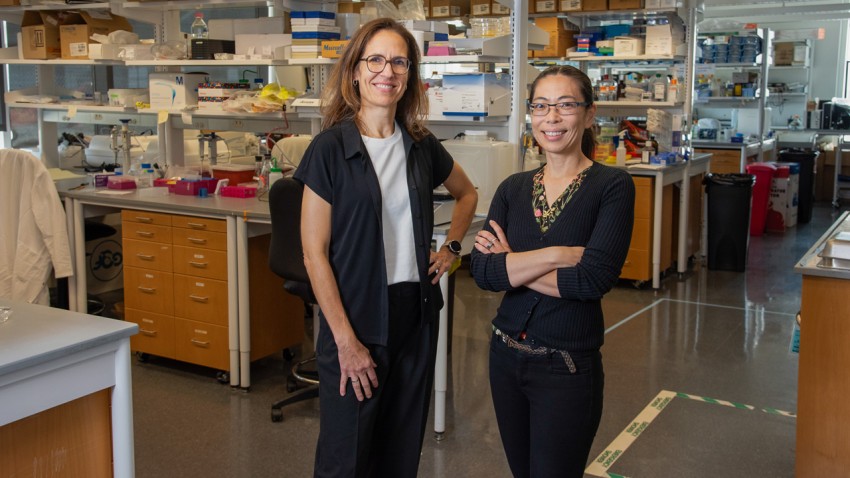News
Scientists at the Cornell College of Veterinary Medicine have found that administering a rotavirus vaccine to newborn mice via a shot, rather than an oral dose, increases its efficacy, particularly for at-risk newborns.
Drawing on cutting-edge technology and interdisciplinary expertise, researchers are launching Menopause Health Engineering, a new initiative to uncover how menopause shapes health and disease.
“Kangaroo care,” or skin-to-skin contact, may be neuroprotective and is associated with neonatal development in areas of the brain involved in emotional regulation in preterm infants, according to a new preliminary study.
Weill Cornell Medicine is collaborating with colleagues in Tanzania to increase the pipeline of female doctors, researchers and policymakers in health care, and focus attention on women’s health in Tanzania.
Increased risk for anxiety may begin before birth, shaped by infection or stressful events during pregnancy, according to a new study from researchers at Weill Cornell Medicine.
In a threatening situation, the world looks more dangerous when caring for an infant, finds new research that used a virtual baby to explore parenting dynamics.
New technology offers hope to couples struggling with infertility and makes fertility treatments more accessible worldwide.
Cornell researchers have uncovered the genetic triggers that cause male and female bovine embryos to develop differently, as early as seven to eight days after fertilization.
The findings of a new study reveal how the current instructions for reconstituting powdered formula are ambiguous and can fail to protect against potentially fatal food-borne bacteria.
Dr. Jennifer Downs of Weill Cornell Medicine is collaborating with Tanzanian researchers to treat schistosomiasis, a parasitic worm infection affecting 250 million people worldwide.
Cornell researchers have discovered a new cell signaling pathway involved in ovulation, a potential target for future research on infertility, contraception and ovarian disease.
A clinical trial in patients with advanced breast cancer has found the use of liquid biopsy blood tests for early detection of a treatment-resistant mutation, followed by a new type of treatment, substantially extends the period of tumor control.












